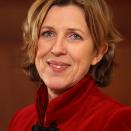1. Our Difficult Best Friend
The US delegation to the Munich Security Conference – composed of Vice President Mike Pence, Secretary of Defense James Mattis, Secretary of Homeland Security John Kelly, and sixteen members of Congress – was one of the largest the event had ever seen. Nonetheless, this did little to allay fears about America’s engagement in the Western alliance and the future of American foreign policy.
Pence and Mattis clearly stated their commitment to NATO, and no less than the secretary of defense expressed disapproval of Russia’s behavior in Ukraine (and both reminded the Europeans, as expected, that they needed to raise their defense spending to better reflect their international responsibility). But Pence made no mention of “Europe” or the “European Union” in his speech, which led some to question whether the Trump administration would ever accept the real significance of European cooperation. The vice president’s recognition of a transatlantic community of values and support for strong democracy met with a certain cynicism, as his president had just described US media as “the enemy of the American People.” Meanwhile, the members of Congress offered exceptional reassurances to their European partners: Republican senator John McCain and his colleagues announced that the legislative branch would work for a close transatlantic relationship, even if that meant working against the president.
This last message was well received by the Europeans, but it failed to alleviate doubts about President Trump’s reliability, who up until now has shown himself an erratic leader. It remains to be seen which factions will win the upper hand within his administration – even the Republicans could not provide any information about the direction US foreign policy might take in the future. There was scarce opportunity for the sort of follow-up questions that might have clarified things a little. Neither Pence nor Mattis was prepared to take questions from the audience in Munich, in contrast to the foreign ministers of Russia, China, Iran, and Saudi Arabia.
2. All Together Now: Germany’s New Responsibility
The German government used the appearances of Defense Minister Ursula von der Leyen, who delivered the conference’s opening speech, and Chancellor Angela Merkel, the opening speaker on Saturday, to deliver a well-coordinated message: Both reminded the audience of the transatlantic community’s common values and the responsibility of the West, and emphasized Germany’s readiness to play a larger role. In harmony with Foreign Minister Sigmar Gabriel, they both stated that simply increasing the defense budget would achieve little, as an effective security policy would have to encompass challenges like development, combating the causes of refugee flows, and failed states – all non-military security concerns. Targeted investments in coordinated European development assistance are thus more important than larger defense budgets, they argued. And all three emphasized, as in previous years, the new constant of German foreign policy: Berlin appreciates its responsibility in and with Europe and with its most important Western partners.
3. Europe: United in Diversity, or Diverging on the Road to Decline?
Federica Mogherini brought an infusion of optimism to the packed hall at the Hotel Bayerischer Hof. The EU’s High Representative for Foreign and Security Affairs reminded her audience of what the EU had to offer and made clear why it should be considered a successful project, despite all the talking down it has been subjected to. The previous day, an optimistic Frans Timmermans, Vice President of the European Commission, had tangled with Polish Foreign Minister Witold Waszczykowski, who claimed his country was “poorly treated.” British Foreign Minister Boris Johnson made clear with characteristic cynicism that the United Kingdom would finally be able to undertake its “liberation.” On Brexit, doubts lingered, too: It was extremely regrettable, as Merkel put it, but Europe will have to live with it. Can this be translated as “This won’t be the end of the EU?”
Munich once again showed the strategic need for Europe to build on its strengths and show them to the rest of the world. The most likely time to launch any new initiatives for security and defense policy or intelligence cooperation was identified as this fall – that is, once the Netherlands, France, Germany, and probably also Italy, have had their parliamentary elections. The question of “how” remained open. Chancellor Merkel suggested moving forward in smaller groups, while Lithuania’s President Dalia Grybauskaite saw the idea of operating at varying speeds within the EU as anything but positive. Even if the conference brought no consensus about the overall sense and form of the distinct formats for cooperation and integration, at least it seems most likely – considering the complexities of the political situation within the EU – that European cooperation will be carried forward in this form.
4. Russia: It’s Complicated
Meanwhile, Russian foreign minister Sergey Lavrov and the chairman of the Duma’s Foreign Affairs Committee, Konstantin Kosachev, tried their best to convince the crowd (of mostly transatlanticists) that NATO is the source of all problems. According to Lavrov, a small group of Western states is attempting to steer global politics while Russia is straining to build strong ties with its neighbors. What’s more, Moscow’s Syria policy has been falsely portrayed abroad, he said: while Western media indulges in biased reporting on the war in Syria and fails to cover the region west of the ceasefire zone, Russia has to this point never endorsed or condemned Syrian President Bashar al-Assad.
Yet those words seemed to fall on deaf ears. Criticism of Russia appeared to be a unifying factor at the MSC. While Lavrov’s message to participants has changed little over the last four years, the West’s has. No longer was Moscow portrayed just as a threat to European unity and as a competing power in the Middle East, but as an enemy actively interfering in Western democracies.
There was much discussion of how open, democratic societies can protect themselves from cyber attacks, fake news, and dangerous propaganda campaigns. It was just one indication of how blurred the lines between domestic and foreign policy threats and debates have been become. European and American stakeholders touched on the myriad challenges that open, globalized societies face today – much to the satisfaction, perhaps, of participants from beyond the West. Lavrov and Iranian Foreign Minister Mohammad Zarif echoed the same sentiment: the end of the Western-dominated world order is upon us.
5. Left Unspoken
It was somewhat curious that the question of peace and stability in the Middle East – one of Europe’s greatest challenges – was shelved until Sunday morning, when various high-ranking stakeholders were already on their way home. Still, panelists took stock of everything from the humanitarian catastrophe in Syria to crumbling regimes across the region, running conflicts, Islamist terrorism, and refugees. Yet there was little talk of concrete solutions. As per tradition, the Iranian, Israeli, and Saudi foreign ministers spoke one after another, but avoided speaking with one another. Washington was unable to explain the Trump administration’s policy for defeating so-called Islamic State, even though it was the president’s highest foreign policy objective during his campaign.
A series of sideline events, meanwhile, focused on cyber security for governments, businesses, and private citizens. Great progress has been made in battling cyber criminality, cyber terrorism, and cyber attacks in recent years, according to conference-goers, yet the risks are in constant flux and often underestimated. Defending against these attacks is a complex and expensive undertaking, and governments, companies and citizens will have to work closer together and harder to do so.
MSC 2017 was largely underscored by a prevailing anxiety that the liberal global order was changing significantly – especially as some non-Western states appear poised to become part of that transition. The transactional nature of international politics these days seems to be at odds with the warnings that current global problems are simply too complex and inter-connected for individual states to tackle alone. Microsoft founder and philanthropist Bill Gates exemplified that best when he warned that bio-terrorism and epidemics could be the next biggest threat, killing tens of millions in a matter of months.
Washington’s future global role, though – be it in international human rights, trade, climate change, or a common policy on fighting terrorism – is still, after days of discussion and debate at the MSC 2017, very much an open-ended question.

